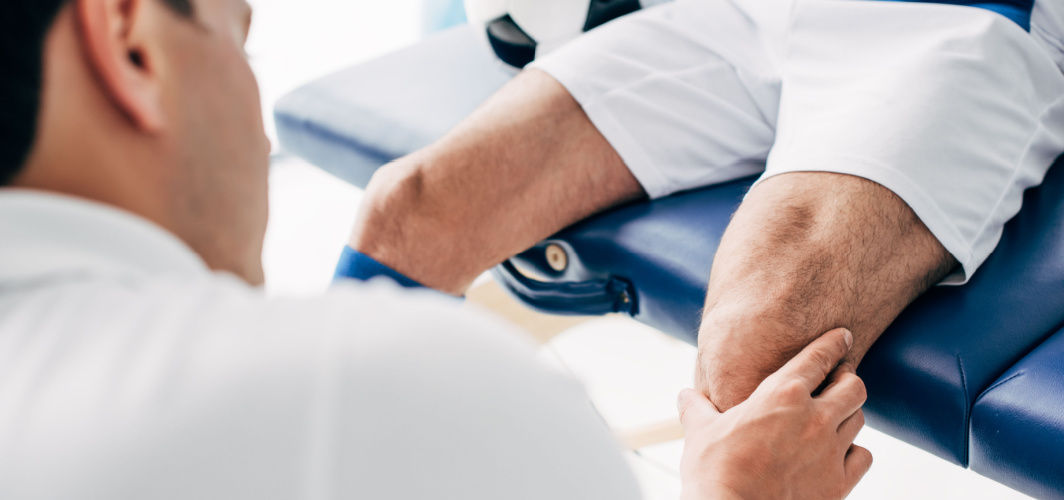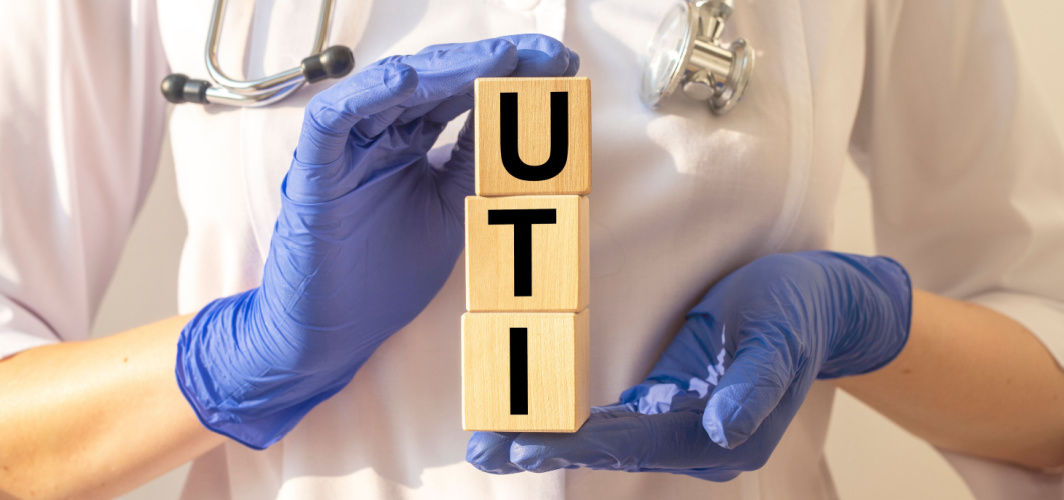General Health
When Should You See a Sports Medicine Doctor About Your Pain?
7 min read
By Apollo 24|7, Published on - 31 October 2023
Share this article
0
0 like

When you experience pain or discomfort related to sports or physical activities, it is essential to seek medical advice. A sports medicine doctor can correctly diagnose and treat injuries, ensuring a safe and effective recovery. Sports medicine doctors are specialised physicians with extensive knowledge and expertise in preventing, diagnosing, and treating sports-related injuries. They understand the demands placed on the body during physical activities. In this blog, we will learn common injuries that warrant a visit to a sports medicine physician as well as what to expect during the consultation.
What are Common Sports Injuries?
Sports injuries can happen to anyone engaged in physical activities, whether you are a professional athlete or a recreational enthusiast. Factors like overuse, improper technique, or sports-related accidents can cause them. Some of the most frequent sports injuries are:
- Sprains: They occur when ligaments that connect bones are stretched or torn.
- Strains: They refer to the stretching or tearing of muscles or tendons.
- Fractures: Fractures are broken bones usually caused by high-force impact.
- Tendonitis: Tendonitis is inflammation of the tendons.
These injuries can happen during various sports activities.
- Running and jumping can lead to ankle sprains or knee injuries.
- Contact sports like football can result in fractures or muscle strains.
- Overuse of muscles or joints can cause tendonitis in sports like tennis or golf.
Signs and Symptoms of Sports Injuries
Acute injuries refer to injuries that occur suddenly during physical activity. Accidents can cause them or fall or direct blows to the body. The most common symptoms of acute injuries include:
- Severe pain
- Swelling
- An inability to move the affected area
Unlike acute injuries, chronic or overuse injuries develop gradually over time due to repetitive stress on the body. These injuries commonly occur in athletes who engage in repetitive motions or activities without adequate rest or recovery periods. Symptoms of chronic or overuse injuries may include:
- Persistent pain
- Swelling
- Limited range of motion
For instance, if you have been experiencing ongoing shoulder pain while swimming or playing tennis, it may be a sign of a chronic injury.
When to Consult a Sports Medicine Doctor?
Instances when consulting a sports medicine doctor becomes crucial include:
- Severe Pain or Swelling: When you experience severe pain or swelling that hinders your daily activities, seeking medical attention from a sports medicine doctor is crucial. Severe pain and swelling can indicate a serious injury, such as a fracture or ligament tear.
- Persistent Pain: It could indicate an underlying issue if you have persistent pain that does not improve with rest or self-care measures.
- Limited Mobility: Limited mobility, such as difficulty moving a joint or muscle, can indicate a more severe injury that requires medical attention.
- Concussion Management: If you experience a head injury, especially if you suspect a concussion, a sports medicine doctor can assess the severity of the injury and guide the appropriate steps for recovery.
- Recurrent Injuries: Recurrent injuries are abnormal and can indicate underlying structural or functional issues that need attention. Consulting a sports doctor is crucial in identifying and addressing the root cause of these recurring injuries.
Additionally, sports medicine physicians can provide valuable advice on optimising your performance through proper training, helping you reduce the risk of future injuries and reach your full potential.
What to Expect During a Sports Medicine Consultation?
Here's what you can generally expect during a sports medicine consultation:
1. Physical Examination
When you visit a sports medicine doctor, they will begin by taking a detailed medical history. They will ask about your previous injuries, medical conditions, and current symptoms.
After discussing your medical history, the doctor will conduct a thorough physical examination. They will assess your range of motion, strength, and stability in the affected area.
2. Diagnostic Tests
Sometimes, the sports medicine doctor may order diagnostic tests to evaluate the condition further. These diagnostic tests provide valuable information about the severity and extent of your injury. These tests can include:
- X-rays: X-rays help evaluate bones and detect fractures or dislocations.
- MRIs: They provide detailed images of soft tissues like muscles and ligaments to identify tears or other abnormalities.
- Ultrasounds: They use sound waves to produce images of internal structures and can help diagnose issues like tendonitis or bursitis.
3. Treatment Options
Sports doctors offer a range of treatment options for various sports-related injuries and conditions.
- Physical therapy is commonly prescribed to improve strength, flexibility, and mobility while reducing pain.
- Medications such as nonsteroidal anti-inflammatory drugs or pain relievers may be recommended to manage pain and inflammation.
- Bracing or taping techniques can provide support and stability to the affected area.
- In some cases, minimally invasive procedures like injections or arthroscopy may be required to address more complex issues.
Rehabilitation and Recovery Process
Rehabilitation is vital in restoring the injured area's strength, flexibility, and function. It helps athletes regain their pre-injury level of performance and prevents long-term complications.
1. Physical Therapy
Physical therapy is an integral part of the rehabilitation process. It involves manual therapy, stretching, and strengthening exercises to improve mobility and function.
2. Rehabilitation Programmes
A sports medicine doctor may also recommend specific rehabilitation programmes tailored to your injury. These programmes can include functional training, sport-specific drills, and gradual return-to-play protocols.
Tips for Preventing Sports Injuries
Some tips for preventing sports injuries are:
1. Warm-up
Before engaging in any physical activity, it is crucial to warm up properly to prevent sports injuries. A good warm-up routine helps prepare your body for the demands of exercise and increases blood flow to your muscles.
Start with light aerobic exercises like jogging or cycling for 5-10 minutes to warm up effectively. Then, move on to dynamic stretching exercises that mimic the movements you'll be doing during your activity.
Stretches should be gentle and gradually increase in intensity. Avoid static stretching before your workout, as it can decrease muscle strength and performance.
2. Proper Technique
Proper technique and form while participating in sports activities is essential for injury prevention. Incorrect movements can stress your joints, muscles, and ligaments, leading to injuries.
To avoid stress on joints, focus on maintaining good posture, using proper body mechanics, and practising the correct technique for each sport or exercise. If unsure about the correct form, consider consulting a sports medicine doctor or a qualified coach who can provide guidance.
3. Incorporating Rest Days
One common cause of sports injuries is overuse or doing too much too soon. Gradually increasing your training sessions' intensity, duration, or frequency allows your body to adapt and become stronger.
Incorporate rest days into your training schedule to give your body time to recover and repair. Overtraining can lead to fatigue, decreased performance, and an increased risk of injuries.
4. Usage of Appropriate Gear
Using appropriate protective gear and equipment is crucial in preventing sports injuries. Depending on the sport you participate in, protective gear may include helmets, mouthguards, shin guards, knee pads, or wrist guards.
Make sure that your protective gear fits properly and is in good condition. Choose footwear that provides adequate support and cushioning for your sport or activity. Ill-fitting or worn-out shoes can increase the risk of foot and ankle injuries.
Conclusion
In conclusion, if you are experiencing pain or injuries related to sports or physical activity, consider seeking the expertise of a sports medicine doctor. They may recommend physical therapy, medication, injections, or surgery if necessary. Sports physicians do not treat just professional athletes but also anyone who engages in physical activity. They can help with various conditions such as sprains, fractures, concussions, overuse injuries, and musculoskeletal problems. Don't let pain or injuries keep you from enjoying your favourite activities. Consult a sports physician for expert care and return to the game!
General Health
Frequently Asked Questions
Are sports medicine doctors only for adults?
Are sports medicine doctors only for adults?
Why should I see a sports medicine doctor instead of my primary care physician?
Why should I see a sports medicine doctor instead of my primary care physician?
How do I choose the right sports medicine physician for me?
How do I choose the right sports medicine physician for me?
Are sports physicians only focused on treatment, or do they also provide preventive care?
Are sports physicians only focused on treatment, or do they also provide preventive care?
Can a sports doctor help improve my athletic performance?
Can a sports doctor help improve my athletic performance?
Leave Comment
Recommended for you
%20(1).jpg?tr=q-80)
General Health
Urea and Creatinine Test: Normal Range, Procedure, and Results
Urea normal range helps monitor kidney efficiency. Understand what healthy levels mean and the significance of blood urea tests in healthcare.

General Health
5 Things You Can Do To Keep Your Liver Healthy
You can keep your liver fit by taking a healthy diet, avoiding harmful processed foods, doing regular exercise, drinking enough water and avoiding exposure to toxic chemicals.

General Health
Why Are Urinary Tract Infections More Common In The Older Adults?
Urinary tract infections (UTIs) are among the most common diseases in the elderly. While in women, UTIs occur due to menopause-related hormone changes, older men tend to have it due to an enlarged prostate gland that prevents proper urine flow. Read on to find out more.
Subscribe
Sign up for our free Health Library Daily Newsletter
Get doctor-approved health tips, news, and more.
Visual Stories

Could There Be More to Your Snore?
Tap to continue exploring
Recommended for you
%20(1).jpg?tr=q-80)
General Health
Urea and Creatinine Test: Normal Range, Procedure, and Results
Urea normal range helps monitor kidney efficiency. Understand what healthy levels mean and the significance of blood urea tests in healthcare.

General Health
5 Things You Can Do To Keep Your Liver Healthy
You can keep your liver fit by taking a healthy diet, avoiding harmful processed foods, doing regular exercise, drinking enough water and avoiding exposure to toxic chemicals.

General Health
Why Are Urinary Tract Infections More Common In The Older Adults?
Urinary tract infections (UTIs) are among the most common diseases in the elderly. While in women, UTIs occur due to menopause-related hormone changes, older men tend to have it due to an enlarged prostate gland that prevents proper urine flow. Read on to find out more.